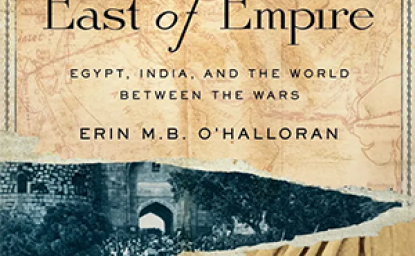Learning Diplomacy: China’s South-South Dance Exchanges of the 1950s and 1960s and Their Relevance Today

Abstract
China-U.S. relations have reached their lowest point in decades, prompting se-rious questions about what changes U.S. policymakers should make to restore this critical relationship and begin to move forward in a more positive and productive direction. When seeking new approaches, China’s foreign relations with other nations in the Global South offers an important point of reference. During the 1950s and 1960s, when U.S.-China relations were also at a low point, China cultivated relationships with other nations using an approach that can be called “learning diplomacy.” As applied in the field of dance, this involved exchanges in which dancers from more developed countries learned from dancers from less developed ones, countering the conventional direction of cultural knowledge flow in colonial relationships at the time. Although observers in the U.S. recognized the power of China’s cultural diplomacy ef-forts, few identified the specific strategy of reversing learning hierarchies as a component of China’s foreign relations approach. Today, China continues to employ relational methods based on mutual respect and people-to-people exchange as a key component of its foreign relations activities in the Global South. This strategy aligns with new conceptions of cultural diplomacy that move beyond notions of culture as a means to represent national interests and instead regard it as a space for dialogue and mutual understanding between nations. This approach should be considered in U.S. cultural diplomacy ef-forts with China in the coming years.
Implications and Key Takeaways
- U.S. policymakers should take immediate steps to revive the Fulbright and Peace Corps Programs to China, two highly successful people-to-people exchange programs that operated for decades with excellent results but were suspended during the Trump administration. U.S. policymakers should recognize that reinstating the Fulbright Program, in particular, is essential for maintaining China expertise in the U.S. today.
- U.S. policymakers should continue to support initiatives such as the Foreign Language and Area Studies Program, the Critical Language Scholarship Program, and Federal Title VI grants that support teaching and research on the cultures, societies, and languages of foreign countries, especially China, in U.S. universities.
- U.S. policymakers should promote the honest teaching of U.S. and world history in K-12 education so that Americans gain accurate understandings of issues such as U.S. race relations and foreign engagement, which will better prepare Americans to engage in international dialogue on equal footing with educated individuals in foreign countries.
- U.S. policymakers should collaborate with Chinese partners, industry, and international organizations to prioritize the return to pre-pandemic ease of travel between the United States and China, recognizing that open borders and increased movement of people between the two countries is necessary to the long-term improvement of U.S.-China relations.
Author

Associate Professor of Chinese Studies, Department of Modern Languages and Literatures, William & Mary.



